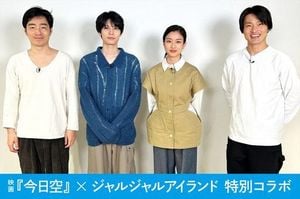On April 4, 2025, the sports world was abuzz with news regarding the potential trade of superstar Shohei Ohtani from the Los Angeles Dodgers, as reported by Yahoo! News. The speculation has stirred excitement and concern among fans, with many wondering what this could mean for the future of the team and the talented player. Ohtani, known for his incredible skills on the mound and at the plate, has been a key figure for the Dodgers since his signing, and the thought of him being traded has left many in disbelief.
The Dodgers, who have been striving to solidify their roster for a championship run, are reportedly considering significant changes. According to the article, the trade discussions have been ongoing for several months, indicating that the team is actively seeking ways to enhance their competitiveness. The prospect of losing Ohtani, who recently showcased his power with a 177-kilometer fastball hit, has left fans anxious about the team’s direction.
In the midst of the Ohtani trade talks, the J-League also made headlines on the same day with a significant announcement regarding coaching licenses. The J-League held a media briefing in Tokyo, where they revealed plans to potentially lower the coaching license requirement for J3 League managers from the current 'Pro license' to an 'A-Class General' license. This move aims to create more opportunities for new coaches to enter the league, as J-League executives have noted that the average age of managers in the league is relatively high.
Junji Okura, an executive at the J-League, emphasized the need for a system that encourages fresh talent in coaching roles. "We have examined data regarding the average age of managers in the top five leagues and the cycle of new managers entering the field. We believe that the J-League has an environment that may not allow new coaches to challenge themselves sufficiently," he stated. The J-League aims to implement this change by the opening of the 2026-27 season, following discussions with the Japan Football Association (JFA) Technical Committee.
Meanwhile, the Dodgers are facing pressure to make a decision regarding Ohtani, especially after the team's recent performance. Critics have pointed to the team's base running errors and questionable decisions as contributing factors to their struggles this season. Some media outlets have labeled Ohtani's decision to attempt a steal as a "mysterious call," suggesting that such decisions might be indicative of deeper issues within the team’s strategy.
As the speculation continues, fans are left to ponder the implications of a potential trade. Ohtani, who has become a fan favorite not only for his on-field prowess but also for his charismatic personality, is seen as an irreplaceable asset. The Dodgers have a storied history, and losing a player of Ohtani's caliber could be a significant blow to their championship aspirations.
In addition to the Ohtani situation, the J-League's decision to reform coaching requirements reflects a broader trend in sports management, where younger, innovative coaches are increasingly being sought after to lead teams. This shift could bring about a new era in Japanese football, as clubs look to harness the energy and fresh ideas of younger coaches.
As the 2025 season progresses, both the Dodgers and the J-League face pivotal moments that could reshape their futures. The Dodgers must navigate the complexities of trade talks while maintaining team morale and performance on the field. Meanwhile, the J-League's proposed changes could enhance the competitive landscape, allowing for a more dynamic coaching environment.
In conclusion, the sports world is watching closely as these developments unfold. The potential trade of Shohei Ohtani and the J-League's coaching reforms are just the latest examples of how quickly the landscape can change in professional sports. Fans, players, and executives alike are eager to see how these stories will evolve in the coming weeks.




